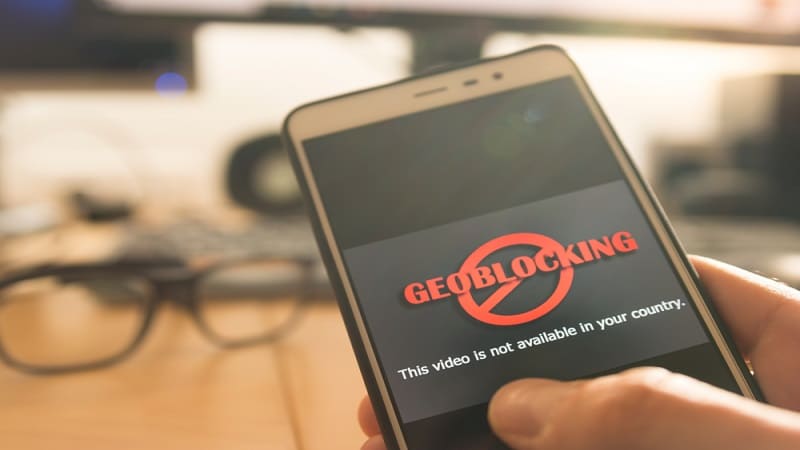Geoblocking is an issue that people all around the globe encounter. The Internet is a huge place. You can find everything you want, but sometimes you may face a disturbing note that says, “This content is not available in your country.”
That’s where you may have problems and see geoblocking in its action. You could hardly ever get around a message like this, and it often appears when you use platforms like Netflix or YouTube. In these moments, we realize that the Internet is not a place where everything will always be available.
There are various reasons why some content might be blocked, but the root problem is geoblocking. So let’s see what you need to know about geoblocking and how to deal with this issue.
What is geoblocking?

You probably thought that all the content on the Internet is available to everyone at any time. But this hasn’t been the case for a long time. By “long” we mean since all the way back to the early days of the Internet when things were much different.
Although we live in the age of digitalization, there are still limitations and challenges, even though we would like to think otherwise. You would probably be surprised by the fact that some countries face harsh censorship and have access only to content approved by their state or government.
That’s called geo-blocking or geo-restrictions, and that is the biggest form of online content blocking around the globe. Geoblocking is the process of restricting or denying access to online content based on geographical location. Simply put, geo-restriction prevents people from one country from having access to online content in another country.
Why is geoblocking used?
Geoblocking is a restrictive online tool that can help people to protect, share and spread content only in areas of their interest. This tool is not just for platforms like Netflix or Amazon; Geo-restriction is used for many different reasons.
Most commonly, content providers use geo-blocking on behalf of content owners or honor their licensing agreements. That’s why certain content, like some music or Hollywood movies, is not available in some countries.
On the other side, geoblocking is used for gambling. You probably know that gambling is illegal in some states and these states use geo-blocking to prevent access to online gambling sites or platforms. For content providers, geoblocking is a restrictive tool that ensures licensing agreements will be respected.
How it hurts businesses

Even though sometimes geoblocking is a good thing, it’s often damaging for both individuals and business organizations. Here are some of the adverse effects it has on companies.
Losing markets
Geoblocking can significantly impact the economy and the loss of markets for certain online companies and businesses. For example, some countries have restricted access to e-commerce platforms like Amazon precisely because of geo-restrictions. This means that Amazon does not have access to all markets, reducing the possibility of higher profits.
Inability to do web scraping
Companies use web scraping to monitor prices, news and to research the market. Web scraping is valuable for significant companies that want to collect web data and improve their business. E-commerce websites use web scraping to enhance their marketing and pricing offers. With restriction tools like geoblocking, this process is much harder and sometimes even impossible.
Can’t do competitor analysis
Competitive analysis is fundamental if a company wants to be successful in business. It is a strategy that helps entrepreneurs to research products, marketing strategies and create unique tactics to perform better than their competition.
Since most companies use geoblocking, this dramatically affects firms just starting out and need such valuable information.
Avoiding geoblocks
As we mentioned, geoblocking restricts access to certain content based on a geographical location. Your IP address is your location while you’re on the web, and your physical location determines it.
When you try to access online content, your IP address goes to the server, and that’s how geoblocking “decides” if you will have access to that content. There are a couple of ways to avoid geoblocks, but proxies are probably the most effective.
How proxies can help

Every computer has a unique IP address. Just as a postman knows where to deliver your mail, the Internet needs to know where to send content data. Proxies are servers that can mask your IP address and even give you a new one.
Proxies send a generated IP address to geo-blocks by cloaking your real IP. For example, if you’re blocked out of some Russian website, you can use a “Russia proxy” to give you a new IP address that will enable you to access the content that you need.
Ideally, in this situation, the “Russia proxy” would be a residential proxy with an actual physical address located in the country. This makes it impossible for the proxy to be recognized and blocked.
Conclusion
Geoblocking is a global issue, and it badly affects some of the major companies and businesses. Luckily there are ways to avoid this restriction tool and have access to every highly demanded content. You can always use solutions like proxies to overcome these challenges.
